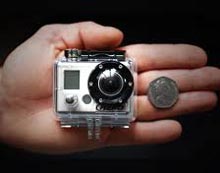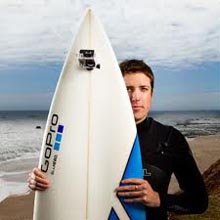NEW: UK Department for International Development (DFID) offers
Commonwealth Scholarships for developing countries students for pursuing
Master’s, PhD, and split-site (PhD) degree level at UK Universities.
Approximately 300 scholarships are awarded each year. The CSC invites around
three times more nominations than scholarships available – therefore, nominated
candidates are not guaranteed to get a scholarship. There are no quotas for
scholarships for any individual country. The application deadline for these
Commonwealth Scholarships is 3rd December 2013.
Study Subject(s):
Scholarships are
provided in all subject areas offered at UK universities, although the CSC’s
selection criteria give priority to applications that demonstrate strong
relevance to development.
Course Level:
Scholarships are available for pursuing Master’s, PhD, and
split-site (PhD) degree level at UK Universities.
Scholarship Provider:
UK Department for International Development (DFID)
Scholarship can be taken at: UK
Eligibility:
To apply for the awards covered in this prospectus,
candidates should:
-Be Commonwealth citizens, refugees, or British protected
persons
-Be permanent resident in a developing Commonwealth country
(a full list is available at http://bit.ly/cscuk-developing-cw-countries)
-Be available to commence their academic studies in the
United Kingdom by the start of the UK academic year in September/October 2014
-Hold, by October 2014, a first degree of upper second class
Honours standard (or above); or a second class degree and a relevant
postgraduate qualification, which will normally be a Master’s degree and
-For awards enhance clinical skills in the fields of
medicine and dentistry, have qualified as a doctor or dentist between 1 October
2004 and 30 September 2009.
-The Commission wishes to promote equal opportunity, gender
equity and cultural exchange. Applications are encouraged from a diverse range
of candidates.
Scholarship Open for International Students:
The students of
developing Commonwealth country (Anguilla, Antigua and Barbuda, Bangladesh,
Barbados, Belize, Bermuda, Botswana, Cameroon, Cayman Islands, Dominica,
Falkland Islands, The Gambia, Ghana, Gibraltar, Grenada, Guyana, India,
Jamaica, Kenya, Kiribati, Lesotho, Malawi, Malaysia, Maldives, Mauritius,
Montserrat , Mozambique, Namibia, Nauru, Nigeria, Pakistan, Papua New Guinea,
Rwanda, St Helena, St Kitts and Nevis, St Lucia, St Vincent and The Grenadines,
Samoa, Seychelles, Sierra Leone, Solomon Islands, South Africa, Sri Lanka,
Swaziland , Tanzania, Tonga, Trinidad and Tobago, Turks and Caicos Islands,
Tuvalu, Uganda, Vanuatu, Virgin Islands (British) and Zambia ) can apply for these scholarships.
Scholarship Description:
Commonwealth Scholarships for students from developing
Commonwealth countries are offered for Master’s, PhD, and split-site (PhD)
study in the UK. These scholarships are funded by the UK Department for
International Development (DFID). Each year, the CSC invites each nominating
agency/university/university body to forward a specific number of nominations.
Each nominating agency/university/university body is responsible for its own
selection process, and in most cases they will set their own closing date,
which will be before the CSC’s deadline for nominations (17 December 2013).
Approximately 300 scholarships are awarded each year. The CSC invites around
three times more nominations than scholarships available – therefore, nominated
candidates are not guaranteed to get a scholarship. There are no quotas for
scholarships for any individual country. The candidates nominated by national
nominating agencies are in competition with those nominated by
universities/university bodies, and the same standards will be applied to
applications made through either channel.
Number of award(s): Approximately 300 scholarships are
awarded each year.
Duration of award(s): -12-36 months’ support towards the
completion of either a full-time taught or a doctoral post graduate
qualification at an eligible UK institution. These awards are open to those
candidates nominated either by the Vice Chancellor/Executive Head of their
employing institution or by the appointed agency in their home country. Please
note that the Commission offers awards for one-year Master’s programmes only,
and does not fund MBAs.
- 12 months’ non-degree study in the United Kingdom on a
Split-Site basis to aid the completion of a doctoral degree undertaken at a
university in the candidate’s home country.
- Up to 6 months enhancing clinical skills in medicine or
dentistry (available only to candidates from developing countries). These
awards are open to candidates nominated by their Vice Chancellor/Executive Head
or by the appointed agency in the home country.
What does it cover? Each Scholarship provides:
-Student concessionary or other approved airfare to the
United Kingdom and return on expiry of the Scholarship (the cost of journeys
made before final award confirmation will not normally be reimbursed, nor can
fares be paid for a Scholar’s dependant)
-Approved tuition and examination fees
-A personal maintenance allowance at the rate of £917 per
month (£1,134 per month for those studying at institutions in the London Metropolitan
area) – rates quoted at 2012-2013 levels
-A grant towards the expenses of preparing a thesis or
dissertation, where applicable
-An initial arrival allowance, incorporating an initial
clothing grant for Scholars from tropical countries
-A grant for expenses for approved travel within the United
Kingdom or overseas
-A grant towards fieldwork costs for those Scholars
undertaking doctoral studies for whom a case has been made for fieldwork
outside the United Kingdom. This shall not normally exceed one economy class
return airfare to the fieldwork location
-A paid midterm fare to their home country for Scholars on
three year doctoral awards. Scholars for whom fieldwork fares are provided to
their home country shall not be entitled to a midterm fare home, nor Scholars
who have claimed (or intend to claim) spouse or child allowances for more than
12 months during their award
-For Scholars selected by the Commission for awards
exceeding 18 months, a spouse allowance of £220 per month is payable provided
that the Scholar and spouse are residing together at the same address in the
United Kingdom. It is not paid when the spouse is also in receipt of an award.
For Scholars accompanied by their spouse and children, a child allowance is
payable at the rate of £138 per month for the first child, and £108 per month
for the second and third child under the age of 16, provided they reside with
their parents. The Commission’s spouse
and family allowances represent only a contribution towards the costs of family
maintenance in the UK and Scholars should expect and be able to supplement
these allowances to support family members who choose to come to the UK.
-Irrespective of the length of the award, a Scholar who is
widowed, divorced or a lone parent will receive an allowance in respect of the
first accompanying child and child allowances for the second and third
accompanying children.
Selection criteria: Applications are considered according to
the following selection criteria:
-Academic merit of the candidate
-The quality of the proposal
-The likely impact of the work on the development of the
candidate’s home country.
Notification: Candidates will be notified of their
provisional selection by the Commission: that is, a selection of the award
subject to the Commission agreeing the terms of admission to the
university/institution. Candidates will be given a formal Notification of Award
– the offer of a Scholarship – as soon as terms of admission to the
university/institution have been agreed. Formal confirmation of the award will
be issued when all conditions of the Notification of Award have been met.
Scholars will be expected to take up the award from the date stated by the
Commission in its Notification of Award.
How to Apply: -All applications must be made through your
nominating agency (or university/university body, if applicable) in your home
country. You must check with them in the first instance for specific advice on
how to make an application and for their own closing date. The CSC cannot
accept any applications directly from candidates.
-The CSC expects all Commonwealth Scholarship candidates to
be nominated by an approved nominating agency/university/university body, and
to have completed an application form using our Electronic Application System
(EAS).
-Full help on how to apply using the EAS is provided in our
guides, which should be read in full before making any attempt to use the EAS.
-The EAS will close to applicants on 3 December 2013 and no
further applications can be made after that date. The CSC will not accept any
applications which are not submitted via the EAS to the nominating
agency/university/university body in the candidate’s home country.
Scholarship Application Deadline: The application deadline
is 3rd December 2013.
For more visit: http://scholarship-positions.com
Now click on WHATS NEW on the top left corner of the screen to enjoy other stories
Now click on WHATS NEW on the top left corner of the screen to enjoy other stories
 GoPro cameras manufactured by Nick’s company Woodman Labs are very useful gadgets for adventure sports enthusiasts like surfers and skydivers. These high quality video cameras can be worn by the user in several different ways. They have the ability to shoot high quality video footage or still photographs at predefined intervals. The fact that popular nature channels like National Geographic and The Discovery Channel make use of GoPro cameras speaks a lot about the quality, utility and popularity of these products. Felix Baumgartner used several GoPro cameras during his supersonic record-breaking skydive from a height of 39 kilometres.
Foxconn, the manufacturer for several reputed products such as the Sony Playstation and the Apple iPhone recently bought 8.88% stake in Woodman Labs for $200 million. The valuation of Woodman Labs thus works out to about $ 2.25 billion.
Nick being a majority stake holder, owns at least 51% of the company and that means his net worth is at least $ 1.15 billion. Let us take a closer look at the qualities of this new billionaire.
GoPro cameras manufactured by Nick’s company Woodman Labs are very useful gadgets for adventure sports enthusiasts like surfers and skydivers. These high quality video cameras can be worn by the user in several different ways. They have the ability to shoot high quality video footage or still photographs at predefined intervals. The fact that popular nature channels like National Geographic and The Discovery Channel make use of GoPro cameras speaks a lot about the quality, utility and popularity of these products. Felix Baumgartner used several GoPro cameras during his supersonic record-breaking skydive from a height of 39 kilometres.
Foxconn, the manufacturer for several reputed products such as the Sony Playstation and the Apple iPhone recently bought 8.88% stake in Woodman Labs for $200 million. The valuation of Woodman Labs thus works out to about $ 2.25 billion.
Nick being a majority stake holder, owns at least 51% of the company and that means his net worth is at least $ 1.15 billion. Let us take a closer look at the qualities of this new billionaire.

A need becomes an opportunity:
 Nick first got the idea about a camera that could be worn by the user in the late 1990s. However, he began thinking about it more seriously while on a surf trip in Australia with a few friends in 2002. It was a great trip with several memorable moments, but sadly it was impossible to take quality pictures of those wonderful moments.
A friend with a camera on the beach could hope to get a few stills, but from the distance they were a far cry from the type of pictures which would befit those thrilling moments. A wearable camera is the solution, but the only options available in those days were disposable waterproof cameras. Apart from poor results, they were neither comfortable to wear nor easy to use.
That trip finally made Nick translate his idea about the wearable camera into a serious project – GoPro. A chance event allowed Nick to see the need and that paved the way for a great opportunity. Most people on the other hand are not likely to take notice when these opportunities present themselves. You will see this ability of spotting opportunities and generating ideas in action in many other places in Nick’s success story. Take a look at how the brand name GoPro was coined.
Nick first got the idea about a camera that could be worn by the user in the late 1990s. However, he began thinking about it more seriously while on a surf trip in Australia with a few friends in 2002. It was a great trip with several memorable moments, but sadly it was impossible to take quality pictures of those wonderful moments.
A friend with a camera on the beach could hope to get a few stills, but from the distance they were a far cry from the type of pictures which would befit those thrilling moments. A wearable camera is the solution, but the only options available in those days were disposable waterproof cameras. Apart from poor results, they were neither comfortable to wear nor easy to use.
That trip finally made Nick translate his idea about the wearable camera into a serious project – GoPro. A chance event allowed Nick to see the need and that paved the way for a great opportunity. Most people on the other hand are not likely to take notice when these opportunities present themselves. You will see this ability of spotting opportunities and generating ideas in action in many other places in Nick’s success story. Take a look at how the brand name GoPro was coined.
 Nick first got the idea about a camera that could be worn by the user in the late 1990s. However, he began thinking about it more seriously while on a surf trip in Australia with a few friends in 2002. It was a great trip with several memorable moments, but sadly it was impossible to take quality pictures of those wonderful moments.
Nick first got the idea about a camera that could be worn by the user in the late 1990s. However, he began thinking about it more seriously while on a surf trip in Australia with a few friends in 2002. It was a great trip with several memorable moments, but sadly it was impossible to take quality pictures of those wonderful moments.Naming the brand:
In the days before GoPro cameras became available, only a professional surfer was able to get quality photographs of themselves in action. These photos were taken by a photographer who went out into the water with the surfer. When amateur surfers experienced great moments, they would often wish from the bottom of their hearts that they could go professional just to have those moments recorded. That gave Nick the idea for the brand name GoPro, something he thought that most surfers would identify with and he was bang on target. The idea that the camera made the wearer feel like a hero gave the model its name – Hero.
Product development:
Initially Hero was only a wrist camera. Nick’s enthusiasm for racing gave the next big idea for further development of the product. A Hero camera strapped to the roll bar of a race car came back with some amazing footage. Nick realized that GoPro should not restrict itself to wrist worn cameras and that it should be possible to wear it in many different ways and be mountable on equipment.
Project funding:
Can belts made of shells and beads pay for the starting capital of a billion dollar company? The way Nick Woodman got the idea for generating the starting capital for his company is as amazing as the rest of his story and once again demonstrates his ability of finding opportunities in situations where most people would see nothing of importance.
Behind every successful man is a strong woman. One day while on a surf trip to Bali,Indonesia, Nick’s girlfriend Jill (now his wife) came back to their place wearing a nice looking belt made from shells and beads. It looked much better than the price she paid for it. Nick seized the opportunity and bought 600 of those belts which he later sold for a neat profit in about two months time. That was how the starting capital for GoPro was raised.
Product development:
 The first model was a 35 mm film camera capable of taking still pictures. Next came the 10 second digital video camera without audio capability. The 3 mega-pixel cameras which could take both still pictures and video footage with audio and save them to a memory card was a major improvement. From then on it was one innovation after another and today with the right Hero camera you can record professional quality HD video. You get all this in a lightweight product that costs only a few hundred dollars.
One of the things that we should all learn from Nick is the hunger for innovation. He has a long list of innovations in line for his products, and the next step will be a dual Hero camera that can record the action in 3D. It is expected to take the product into an entirely new level and it is likely to hit the market in a few months.
The first model was a 35 mm film camera capable of taking still pictures. Next came the 10 second digital video camera without audio capability. The 3 mega-pixel cameras which could take both still pictures and video footage with audio and save them to a memory card was a major improvement. From then on it was one innovation after another and today with the right Hero camera you can record professional quality HD video. You get all this in a lightweight product that costs only a few hundred dollars.
One of the things that we should all learn from Nick is the hunger for innovation. He has a long list of innovations in line for his products, and the next step will be a dual Hero camera that can record the action in 3D. It is expected to take the product into an entirely new level and it is likely to hit the market in a few months.

The hunger for success:
Nick said at an interview that he was confident about the success of his business when his first camera model generated a revenue of $ 2000 at his very first trade show. When you are looking for success, you should not think about failure. If you want to learn swimming, you should never think about drowning. This quality is essential to keep fears and doubts in control and stay on the track to success. Nick showed ample evidence of this quality and according to him, the thought of failure never crossed his mind. Sometimes not having any clue about the future is a boon in disguise for the entrepreneur.
A few great shots taken on a GoPro camera:



 The story of Nick Woodman, this year’s new billionaire and his brand GoPro reads like a book which demonstrates the key ingredients for success. It shows how the ability to find opportunities in ordinary situations in life together with some great ideas and constant innovation take people to great heights. Luck is always good to have, but as the saying goes, fortune favors the brave.
The story of Nick Woodman, this year’s new billionaire and his brand GoPro reads like a book which demonstrates the key ingredients for success. It shows how the ability to find opportunities in ordinary situations in life together with some great ideas and constant innovation take people to great heights. Luck is always good to have, but as the saying goes, fortune favors the brave.




US orders new visa reviews for arriving students
WASHINGTON (AP) — The Homeland Security Department ordered border agents to verify that every international student who arrives in the U.S. has a valid student visa, according to an internal memorandum obtained Friday by The Associated Press. The new procedure is the government's first security change directly related to the Boston bombings.
The order, which is effective immediately, came from a senior official at U.S. Customs and Border Protection, David J. Murphy. It was circulated Thursday, one day after the Obama administration acknowledged that a student from Kazakhstan accused of hiding evidence for one of the Boston bombing suspects was allowed to return to the U.S. in January without a valid student visa.
The student visa for Azamat Tazhayakov had been terminated when he arrived in New York on Jan. 20. But the border agent in the airport did not have access to the information in the Homeland Security Department's Student and Exchange Visitor Information System, called SEVIS.
Tazhayakov was a friend and classmate of Dzhokhar Tsarnaev's at the University of Massachusetts Dartmouth. Tazhayakov left the U.S. in December and returned Jan. 20. But in early January, his student-visa status was terminated because he was academically dismissed from the university.
Tazhayakov and a second Kazakh student were arrested this week on federal charges of obstruction of justice. They were accused of helping to get rid of a backpack containing fireworks linked to Tsarnaev. A third student was also arrested and accused of lying to authorities.
A spokesman for the department, Peter Boogaard, said earlier this week that the government was working to fix the problem, which allowed Tazhayakov to be admitted into the country when he returned to the U.S.
Under existing procedures, border agents could verify a student's status in SEVIS only when the person was referred to a second officer for additional inspection or questioning. Tazhayakov was not sent to a second officer when he arrived, because, Boogaard said, there was no information to indicate Tazhayakov was a national security threat. Under the new procedures, all border agents were expected to be able to access SEVIS by next week.
The government for years has recognized as a problem the inability of border agents at primary inspection stations to directly review student-visa information. The Homeland Security Department was working before the bombings to resolve the problem, but the new memo outlined interim procedures until the situation was corrected.
Under the new procedures, border agents will verify a student's visa status before the person arrives in the U.S. using information provided in flight manifests. If that information is unavailable, border agents will check the visa status manually with the agency's national targeting data center.
It is unclear what impact the new procedure will have on wait times at airports and borders. Customs officials will be required to report any effect, including longer waits, on a daily basis.
A Buffalo, N.Y., college has advised student-visa holders from Canada to add two hours to their daily commute. In an email sent to D'Youville College students, staff and faculty, International Student Office Director Laryssa S. Petryshyn said the security change "is causing and will cause numerous delays for all international students entering the United States."
The Obama administration announced an internal review earlier this week of how U.S. intelligence agencies shared sensitive information before the bombings and whether the government could have prevented the attack. Republicans in Congress have promised oversight hearings, which begin Thursday.
Sen. Charles Grassley, R-Iowa, asked Homeland Security Secretary Janet Napolitano on Thursday for details from the student-visa applications of Tazhayakov and Dias Kadyrbayev, the Kazakhstan students implicated in helping Tsarnaev after the bombings, including information about how Tazhayakov re-entered the United States. In a follow-up letter sent Friday, he asked Napolitano for additional details on SEVIS records and the student visa program.
Lawmakers and others have long been concerned about terrorists exploiting the student visa system to travel to the United States. A 20-year-old college student from Saudi Arabia was arrested in Texas in 2011 on federal charges of attempted use of a weapon of mass destruction. Authorities accused him of plotting to blow up dams, nuclear plants or the Dallas home of former President George W. Bush. He was later convicted and sentenced to life in prison.
___
Associated Press reporter Carolyn Thompson in Buffalo, N.Y., contributed to this report.
IS DELHI UNIVERSITY DYING?
NEW DELHI: Fresh apprehensions are coming in against the introduction of the four-year undergraduate programme in Delhi Universityfrom the current academic year. According to a letter to the Prime Minister signed by former justice of Delhi high court and president of People's Union for Civil Liberties Rajinder Sachar, veteran journalist and formerhigh commissioner to United Kingdom Kuldip Nayar, former Maharashtra home minister Bhai Vaidya, Ramon Magsaysay Award winner Sandeep Pandey, PUCL vice-president Ravi Kiran Jain and senior advocate and historian Anil Nauriya, "The impact on minorities/ SC/ ST/ OBC and financially weaker sections must be taken into consideration before such a plan is implemented."
The letter also punctures the claims of the university that the anti-FYUP struggle has been predominantly led by a "small" group of Left-backed teachers. The signatories of the letter have urged a national-level debate stating that DU does not exist in isolation.
"Several educationists and intellectuals all over the country have expressed their apprehensions about the merit of this decision. We, too, believe that such a basic change in the higher education system and policy should be first examined by the ministry of human resource development and parliament in consultation with prominent educationists. The DU does not exist in isolation. If this change is so important, it should be implemented at the national level. DU can wait for a couple of years in the best interest of students nationwide."
Joint Action Front for Democratic Education convener and president of Indian Justice Party Udit Raj said that FYUP is a "conspiracy to stop India from becoming the world's biggest knowledge society" and that it will influence higher education policy in the country which will, in turn, have an adverse effect on the interests of SC/ ST/ OBC who are only now entering higher education.
"Various representations to different authorities like MHRD, Prime Minister and the President have been made and yet there is no reconsideration. What forces are behind this move? Obviously the ground is being made ready for privatization of higher education. The SC, ST and OBC will be most affected not only because of the increased financial burden on them but also on many other counts such as course content, internal assessment and background. Instead of increasing the duration of the programme, attempts should be made to enrich the course content. Private colleges and universities have more elasticity to adopt the four-year programme which will accelerate privatization and these communities will be the worst-affected. Higher education in India is associated with higher social status, high income and better job. This is not the case in the United States. FYUP will not only lead to more dropouts but also make higher education inaccessible to these communities," Udit Raj said.


No comments:
Post a Comment